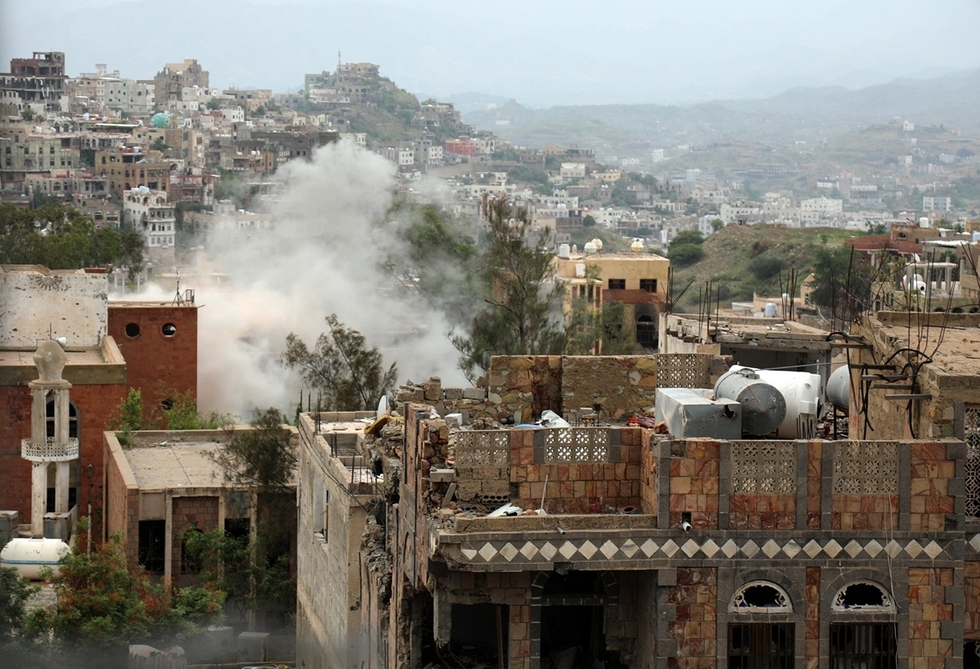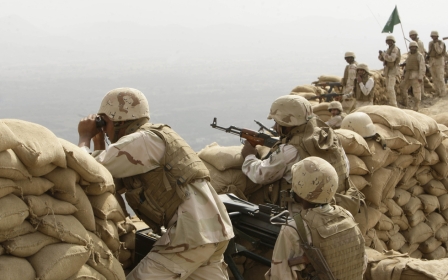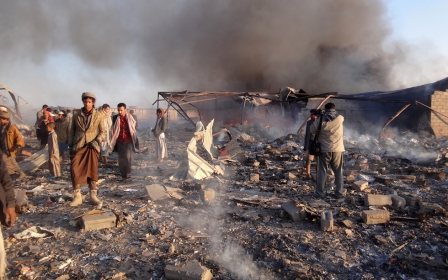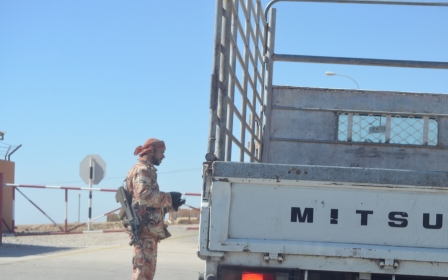Houthi rocket attack in Yemen's Taiz kills nine, including journalist

Houthi rebel rocket fire killed nine people, including a journalist and a child, in Yemen's southwest province of Taiz on Monday, a government official said.
A barrage of six rockets rained down during the opening of a new security facility in the town of Nashma, killing four soldiers and five civilians, the official told AFP.
The deputy interior minister of Yemen's internationally-recognised government, as well as dozens of local residents, were in attendance, he said.
Yemen's Belqees TV confirmed the killing of its cameraman Mohammed al-Qudsi, in a statement on its website, blaming "Houthi shelling".
It said Qudsi joined the channel a year and a half ago, where he “reported the news, covered events and documented abuses with his camera”, adding that he gave up his life for the truth.
A local journalist working for RT Arabic was also injured in the attack, according to Yemeni media reports.
The Committee to Protect Journalists (CPJ), a New York-based watchdog, condemned the killing of Qudsi, saying that his "death is a reminder that journalists covering the conflict in Yemen do so at risk of paying the highest possible price".
The rebels, in a statement carried by their Saba news agency, said they had attacked the complex with a ballistic missile, "killing dozens of mercenaries, including commanders".
Translation: Belqees TV mourns the martyr, photographer Mohammed al-Qudsi, and calls on international organisations to intervene to protect journalists.
Taiz, the provincial capital of the same name, is held by forces loyal to the government. But much of the surrounding area is in the hands of the Houthis and has been a key battleground in the war.
More than 10,000 people have been killed in Yemen since March 2015, when a Saudi-led coalition intervened with the aim of pushing the Houthis from Sanaa and restoring the government to power.
The Houthis, however, have only hardened their grip on the capital after gunning down their former ally, ex-president Ali Abdullah Saleh.
Almost another 2,200 Yemenis have died of cholera and 53 of diphtheria amid deteriorating hygiene and sanitation conditions, according to the World Health Organisation.
The Saudi-led coalition, which has imposed a blockade on Yemeni ports, announced $1.5bn in new humanitarian aid for Yemen on Monday, after the United Nations issued what it called a record appeal for assistance for the war-ravaged country.
The coalition said it would also "increase the capacities of Yemeni ports to receive humanitarian" imports, as it faces mounting criticism for imposing a crippling blockade on the country.
The United Arab Emirates, a key member of the Saudi-led coalition, said on Monday that one of its soldiers had died in Yemen. It gave no details on when or how the soldier died.
Also on Monday, the United Nations announced that its Yemen mediator Ismail Ould Cheikh Ahmed will step down when his current contract that runs through February ends, after nearly three years on the job.
UN-led efforts have failed to reach a diplomatic solution to the conflict despite several rounds of talks between the country’s warring factions.
"In this moment, his thoughts go first to the Yemeni people who are worn out by this conflict and are enduring one of the most devastating humanitarian crisis in the world," UN spokesman Stephane Dujarric said.
New MEE newsletter: Jerusalem Dispatch
Sign up to get the latest insights and analysis on Israel-Palestine, alongside Turkey Unpacked and other MEE newsletters
Middle East Eye delivers independent and unrivalled coverage and analysis of the Middle East, North Africa and beyond. To learn more about republishing this content and the associated fees, please fill out this form. More about MEE can be found here.




